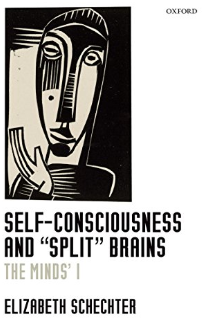In this episode, I had the honor of speaking with Dr Jill Bolte Taylor. Dr. Taylor is a Harvard-trained and published neuroanatomist who experienced a severe hemorrhage in the left hemisphere of her brain in 1996. It took eight years to completely recover all of her physical function and thinking ability. She is the author of the New York Times bestselling memoir My Stroke of Insight: A Brain Scientist’s Personal Journey. We discussed left-brain, right-brain and what that means for our understanding of consciousness. Please enjoy this episode with Dr. Jill Bolte Taylor.
We discussed:
- You became a neuroanatomist for personal reasons — your brother?
- Can you tell us what a neuroanatomist is, what you study?
- I’m sure most people listening know your story, but could I trouble you to give us a recap of your stroke experience?
- As a neuroanatomist, what do (and did) you know about the roles of the two hemispheres of the brain?
- What did you learn about them as a result of your personal experience?
- During your stroke and during recovery — and today — how did you experience your consciousness?
- “At one with the universe”? Loss of left brain, amazing being, life!
- You still live right-brain/left-brain, and friends can tell which one just walked in the room? Can you control this? [now you eat squash? Can’t see that happening for me]
- What is your opinion on consciousness and the brain? Is consciousness created by brain matter? Something else?
- How did your experience help form that opinion?
- Ego? L/R?
- Consciousness is numerous programs running all at the same time?
- Consciousness in the cells of our body…expand on that?
- Two hemispheres, two consciousnesses?
- What happens when they recombine?
- [Right mind/brain: no time, now, creative, out-of-the-box]
- [Left mind/brain: sequences right brain experience in time; inner voice; self/ego; patterns & predictions; literal]
- You describe your body as a portal for the ‘energy’ that you are? That you’re just visiting?
- Is that “real” or a perception of your right brain?
- What do you mean, that we are ‘energy beings’?
- How has this experience helped you to help others?
- “I believe the more time we spend running the deep inner peace circuitry of our right brain, then the more peace we will project into the world, and ultimately the more peace we will have on the planet.” I assume we can learn that from you in the book? Any teasers you’d like to share?
- Whine time? Listen to left-brain chatter. Observe and dismiss it.
- Other mechanisms are in the book, things to divert away from the negative activities of the left brain.
- Not subject matter of this podcast, but your advice in loved-ones working with those who’d suffered similar strokes is great info, very warm and important
- “I believe the more time we spend running the deep inner peace circuitry of our right brain, then the more peace we will project into the world, and ultimately the more peace we will have on the planet.” I assume we can learn that from you in the book? Any teasers you’d like to share?
- What’s next from you? New book next year (April 2021) on the practical use of this information.
- Anything else you want to share?
Podcast: Play in new window | Download
